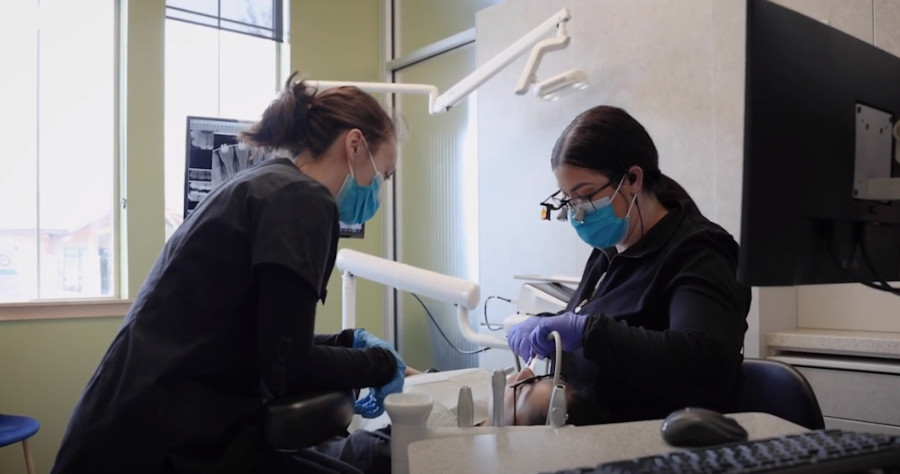AI has revolutionized numerous industries, and dentistry is no exception. In a modern dentist’s office, artificial intelligence plays a crucial role in streamlining processes, enhancing patient care, and improving diagnostic accuracy. From appointment scheduling and patient management to imaging analysis and treatment planning, AI technologies help transform the way dental practices operate. let’s delve into the various applications of AI in a dentist’s office, showcasing its benefits and impact on both professionals and patients.

One of the primary areas where AI is making a significant impact in a dentist’s office is in administrative tasks. AI-powered systems can automate appointment scheduling, reducing the burden on staff and ensuring a smooth and efficient process. Advanced chatbots and virtual assistants can handle patient inquiries, provide information about services, and even help patients fill out forms online. This automation frees up valuable time for the dental team, allowing them to focus on providing high-quality care and personal attention to their patients.
AI is also instrumental in improving the accuracy and efficiency of diagnostic procedures in a dentist’s office. Dental imaging technologies, such as X-rays and CT scans, can generate vast amounts of data. AI algorithms can analyze these images and detect various oral health conditions, including cavities, fractures, and gum diseases. By assisting dentists in the interpretation of these images, AI reduces the chance of human error and enables faster and more precise diagnoses. This leads to improved treatment planning and better outcomes for patients.
In addition to diagnostics, AI is transforming the field of treatment planning in dentistry. With the help of AI algorithms, dentists can simulate different treatment options and predict their potential outcomes. By inputting patient data, such as oral scans and 3D models, AI can generate virtual treatment plans, allowing dentists to visualize the final results and make informed decisions. This technology enables more personalized treatment approaches and enhances patient communication, as dentists can present realistic visualizations to patients, fostering better understanding and collaboration.
AI is also revolutionizing patient monitoring and preventive care in a dentist’s office. Machine learning algorithms can analyze patient data, including dental records, medical history, and lifestyle factors, to identify patterns and predict oral health risks. By flagging individuals who are more susceptible to certain dental conditions, dentists can implement proactive measures to prevent problems before they arise. AI can also aid in tracking patients’ oral hygiene habits and provide personalized recommendations, motivating individuals to maintain good oral health practices.
The integration of AI in a dentist’s office not only enhances the quality of care but also contributes to a more efficient and cost-effective practice. By automating administrative tasks, reducing human error in diagnostics, and optimizing treatment planning, AI technologies save time and resources. Dentists can operate more efficiently, increase their patient capacity, and allocate their expertise to areas that require human interaction and decision-making. Furthermore, patients benefit from improved accuracy, faster diagnoses, and personalized treatment options, leading to higher satisfaction rates and better overall oral health outcomes.
In conclusion, AI has become an integral part of a dentist’s office, transforming various aspects of dental care. From automating administrative tasks and improving diagnostics to enhancing treatment planning and preventive care, AI technologies are revolutionizing the dental industry. As these advancements continue to evolve, dentists and patients alike can look forward to a future where AI-driven solutions further optimize oral health practices and contribute to the overall well-being of individuals.

